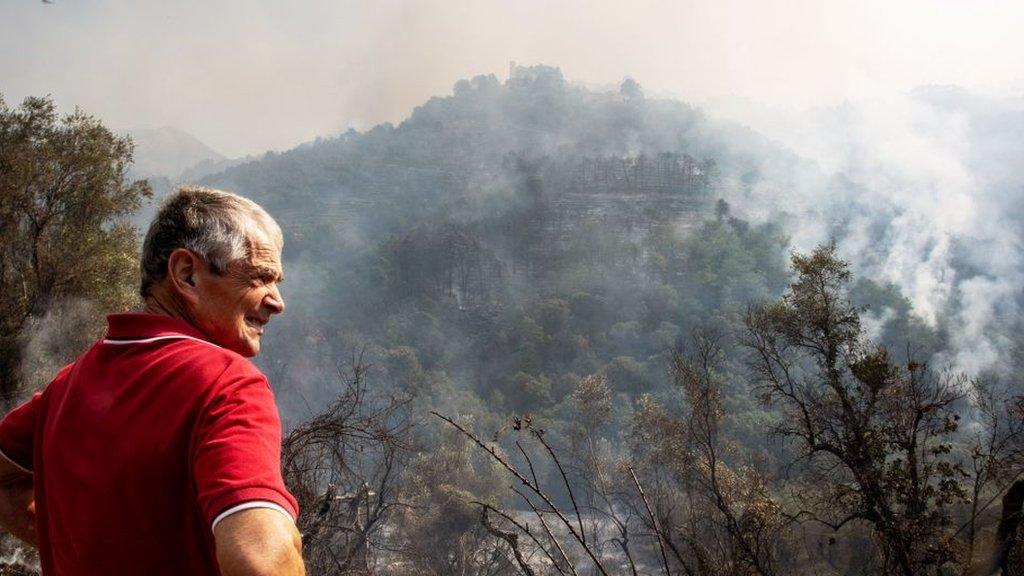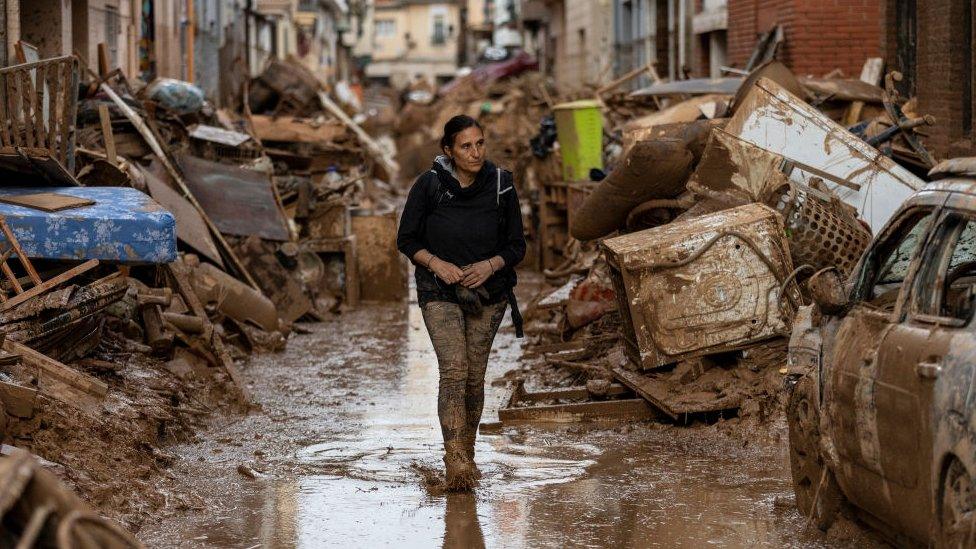UK weather: Driest start to year in England and Wales since 1976
- Published
- comments
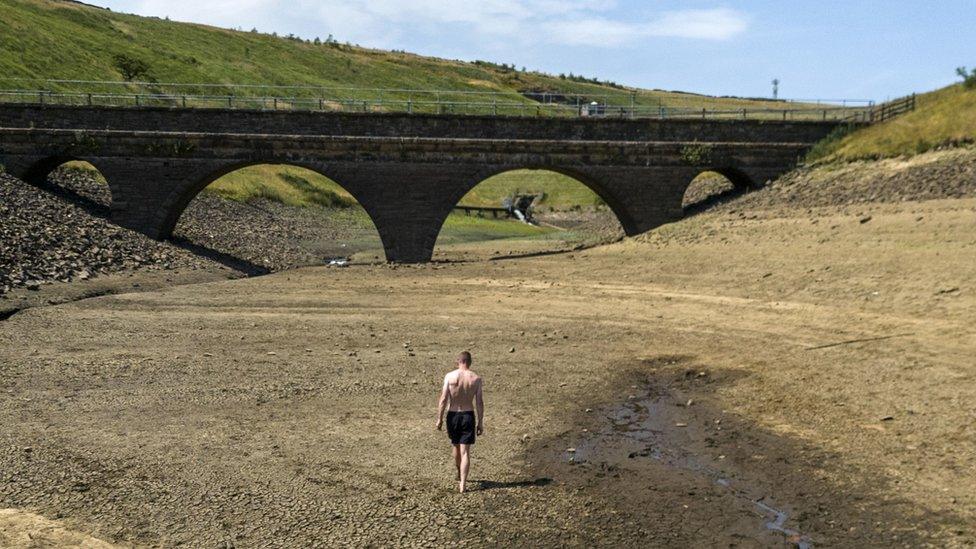
The period between January and June this year was the driest in England and Wales since 1976 by one Met Office measure, external.
With water levels running low, the National Drought Group met on Tuesday to discuss how to cope with conditions.
The group stopped short of declaring a drought but water companies have been putting the early stages of their drought plans into action by urging people to save water.
It comes after the UK's record temperature was broken last week.
Using the most long-running data from the Met Office, it showed there was the smallest amount of rainfall between January and June in 46 years. Other measures also showed it to be one of the driest years.
Conditions have been particularly dry in the south-east of England with the west, Wales, Scotland and Northern Ireland seeing lower temperatures and more rainfall.
Officials from bodies including the Department for Environment, Food and Rural Affairs (Defra), the Environment Agency, the National Farmers' Union and the Country Land and Business Association have met with water companies to discuss how to protect supplies.
They are urging people not to waste water after months of below average rainfall, but no restrictions on usage have been put in place in England.
Environment Agency executive director Harvey Bradshaw, who chairs the National Drought Group, said the group would continue to monitor the situation with further dry weather forecast for August.
Nowhere in England is currently considered "in drought" but most of the country except for the north-west has moved into "prolonged dry weather" status, with low river flows which can impact farmers and wildlife.
Months of below-average rainfall has also led to low groundwater levels, dry soils and low reservoir levels.

The last time a drought was officially declared was in 2018.
If dry conditions continue, the next stage of the drought plan would be to impose restrictions on non-essential water use, such as hosepipe bans, which would be introduced by individual water companies.
The Isle of Man is imposing a hosepipe ban from Friday.
Amid the dry weather the Environment Agency has applied for a drought order for the Holme Styes reservoir in Yorkshire to slow the flow of water and prevent it running dry, which could harm wildlife and plants.
Southern Water has also applied for a drought permit for the River Test in Southampton, allowing it to continue to draw water from the river despite the water levels dropping below the usual minimum.

'Farmers really, really concerned'
By Jonah Fisher, climate correspondent
"It's unheard for us to be combining (harvesting) this crop at this date in the calendar."
I am on my haunches in the middle of a field with Jake Freestone, the farm manager at Overbury Estates, one of the largest farms in Worcestershire.
In his hands are some hard dried beans. Normally they wouldn't be harvested until September but this summer's weather has left him no choice but to set the combine harvester loose and take them in now.
"We had some dry weather in June and then in the last ten days we've had extremely hot weather that has effectively ripened them off and killed them in the field," he says with a shake of his head.
A forced early harvest means lost money. The yield from each bean field will be about 20% less than usual, and the quality has suffered too.
Jake says the beans are likely to be judged not good enough for human consumption and instead be used as animal feed, which means a price drop of about ten percent.
"Farmers are really really concerned at the moment", he says.
Plans to plant more seeds for a new crop of oilseed rape are on hold, until there is sufficient rain to give them a chance of success.

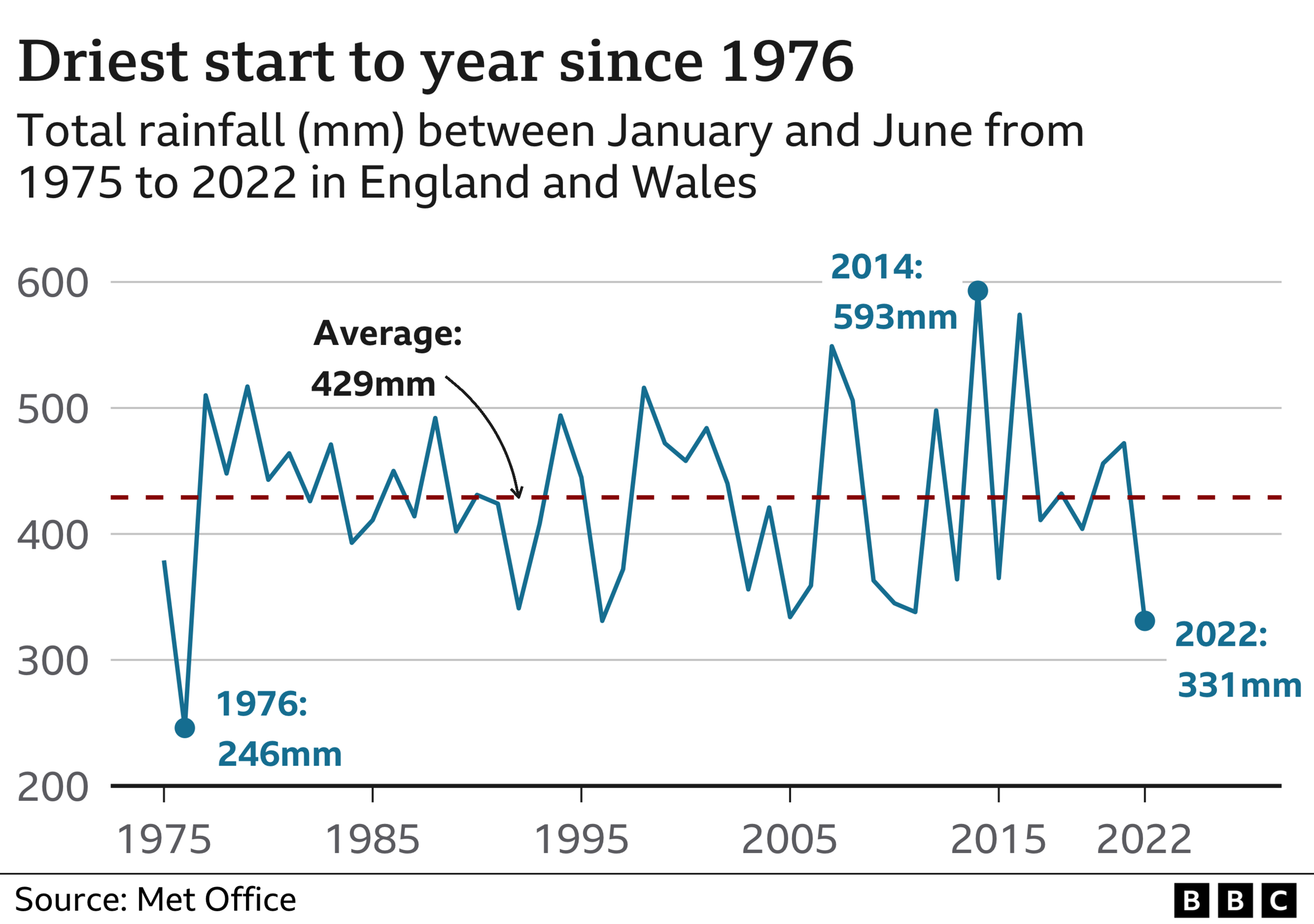
Dr Rob Thompson, a meteorologist at the University of Reading, said while the weather was dry and the amount of rain recently was below average, it was not unusual, with similar dry periods occurring every few years.
He said the amount of rainfall this year was about the same as the last official drought in 2018-19, although he said the prolonged warm weather meant the ground was drier, increasing the effect on farming.
Dr Thompson said with climate change the amount of rain each year was not expected to increase much but the way in which it fell might differ.
"We expect more extremes, and the extremes to be more extreme," he said, warning the UK could see more periods of droughts but also more flash flooding.
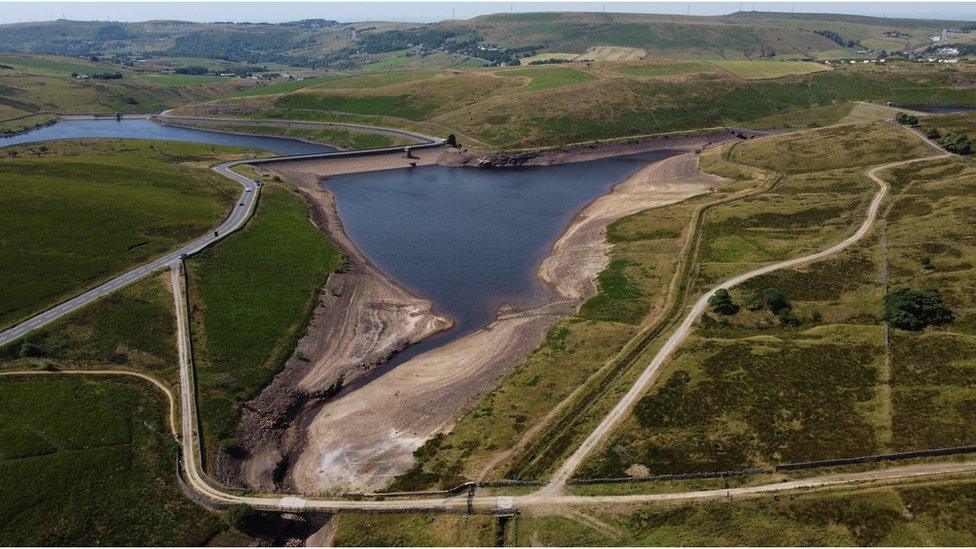
Low water levels at Dowry Reservoir near Oldham
The UK is not the only country experiencing hot and dry weather with many parts of Europe ablaze with wildfires, a drought emergency declared in northern Italy and a UN warning that 20 million people are at risk from severe hunger in East Africa.
The hottest ever temperature in the UK was recorded last Tuesday, with thermometers hitting 40.3C in Lincolnshire and more than 30 places reaching temperatures above the previous record.
Amid the heat and dry weather there were a series of fires across the UK, with the London Fire Brigade experiencing its busiest day since World War Two.
Heatwaves are becoming more likely and more extreme because of human-induced climate change.
The world has already warmed by about 1.1C since the industrial era began, and temperatures will keep rising unless governments around the world make steep cuts to emissions.
We are living in the hottest period for 125,000 years, according to the UN's climate science body, the Intergovernmental Panel on Climate Change.
Update 25 August: This story was updated to reflect that January to June this year was the driest in England and Wales by one Met Office measure and that other measures showed it to be one of the driest years.

'WEAPONS CAPABLE OF ERADICATING OUR SPECIES': Matthew Syed calls for a nuclear awakening
OUR BRAINS AS PREDICTION MACHINES: How do our beliefs shape our reality?

Related topics
- Published19 July 2022
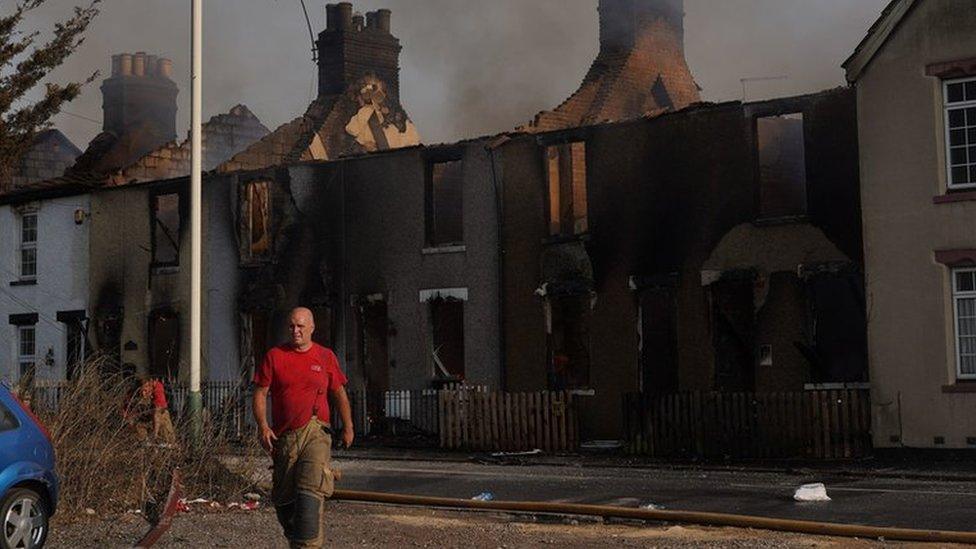
- Published21 July 2022
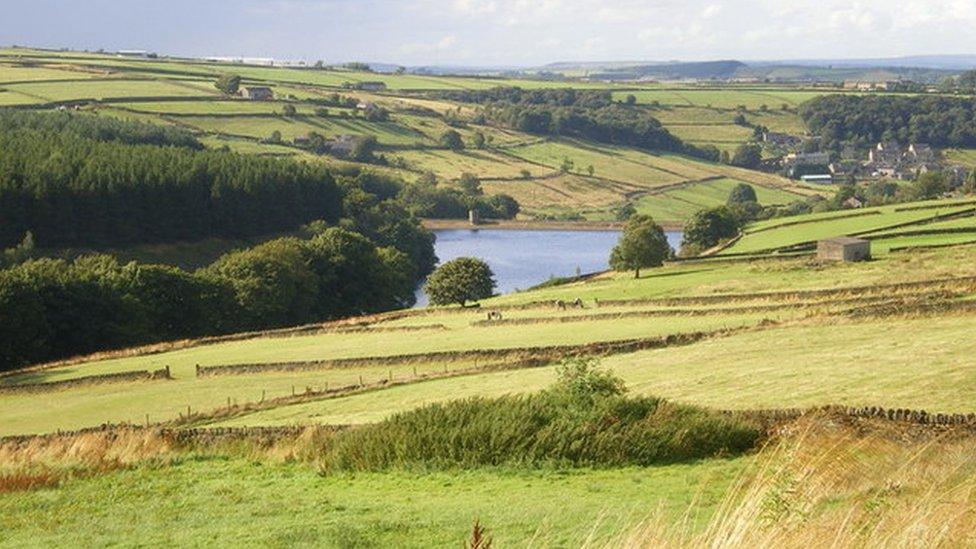
- Published15 July 2022
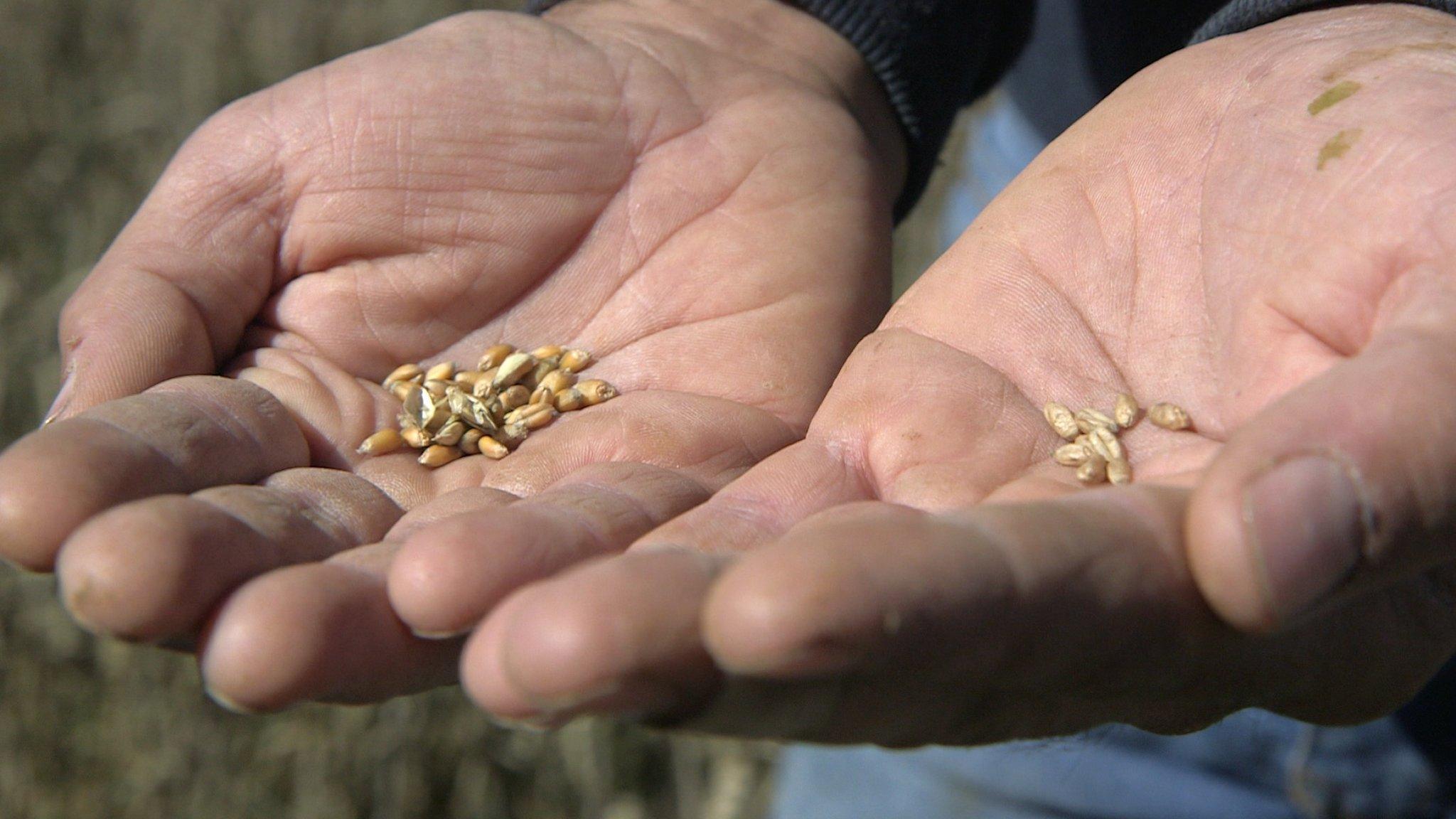
- Published21 July 2022
